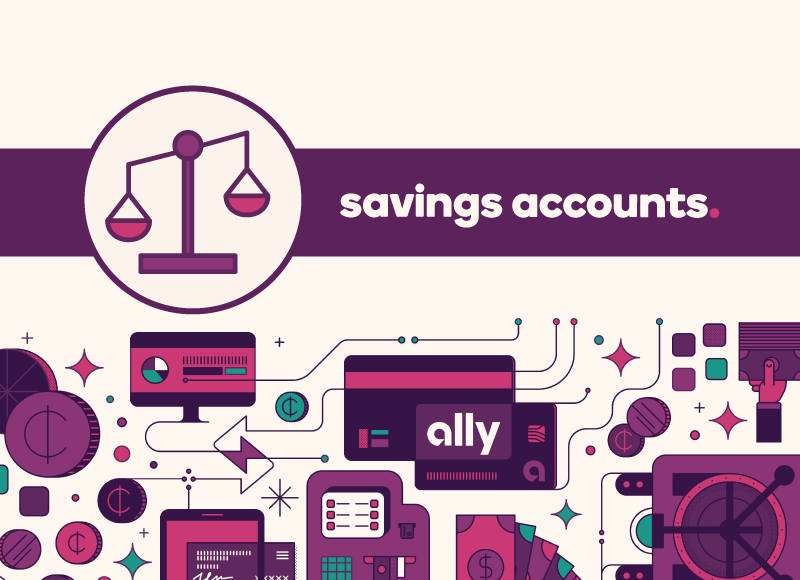State Bank of India offers a range of savings accounts for both adults and minors. This group of accounts includes SBI Basic Savings Accounts, Small Savings Accounts, and Savings Plus Accounts among others. In this blog, you can examine and compare the most recent SBI savings account interest rates, which go into effect in 2022. Also, details on how to open SBI savings account online, the minimum balance required, the necessary paperwork, the SBI Balance Check number, and more are discussed.
Table of Contents
SBI Savings Account Types
Six different types of savings accounts are available to State Bank of India customers. Let’s discuss them below.
1. Basic Savings Account (Pradhan Mantri Jan Dhan Yojana)
The main goal of this basic savings account is to empower the less fortunate members of society by allowing them to begin saving.
Features:
- Offered at all branches
- SBI minimum balance is ₹0
- The maximum balance or sum No upper bound
- There is no Cheque Book option available.
- Withdrawals can only be done through ATMs or branches using a withdrawal form.
- There will be a basic Rupay ATM/debit card issued.
2. Basic Small Savings Account
Any adult over the age of 18 who lacks officially valid KYC documents may open this account. The account can be changed to a standard savings account after submitting the necessary KYC documentation. Designed especially to motivate individuals from lower socioeconomic classes to begin saving without incurring any fees or charges.
Features:
- Available at all branches, excluding special branches
- Withdrawals can be done from any ATM or branch
- A basic RuPay ATM/debit card was issued.
- The required SBI minimum balance is ₹0.
- A maximum of ₹ 50,000 is available.
- Customers can check their account balance with the SBI Balance check number
3. Saving Banks Account
SBI saving bank account is a simple and direct savings account that offers general public services like SMS Banking, Internet Banking, Credit Cards, and more. To open this account, users must have valid KYC documentation.
Features:
- Mobile banking
- SMS Alerts
- SBI Quick missed call service.
- The first 10 cheques leave free per year
- Free withdrawals restricted to average monthly balances are maintained.
- The facility of account transfers through Internet Banking.
- Nomination process available
- No maximum balance restriction
- A Pass Book is issued to maintain the track and if the original one is lost, a duplicate can be obtained after paying a nominal fee.
- Free Consolidated Account Statement
4. SBI Savings Account for Minors
Both savings accounts have an abundance of banking capabilities, including Internet and mobile banking. All of these features have “per day limits” to make sure the money is spent appropriately.
Features:
- Two cheque books are available (Pehla Kadam & Pehli Udaan).
- Pehla Kadam is issued to the parent/guardian either individually or jointly with the minor.
- Pehli Udaan is given when a minor can sign legibly.
- Auto Sweep facility offered with a limit of at least ₹ 20,000.
- Offers an E-Term Deposit option.
- A passbook with a unique design is provided without charge.
- The required SBI minimum balance is ₹0
5. SBI Savings Plus Account
Savings Plus Accounts are connected to MODS, and any surplus funds that exceed a certain threshold are automatically transferred to Term Deposits that are opened in multiples of ₹ 1000.
Features:
- Automatic conversion of excess funds into fixed deposits
- Deposit timeframe: 1 to 5 years
- Available loan against MOD deposits
6. Insta Plus Video KYC Savings Account
Through video KYC, this SBI savings account can be opened online using only Aadhaar and PAN (physical) information.
Features:
- Nomination is required.
- Available SBI Quick Missed call service and SMS alerts.
- Entitles fund transfers using the YONO app or online SBI services such as NEFT, UPI, and IMPS.
- Check account balance with SBI Balance check number.
Conclusion
Most banks offer online account access, even for their free or very inexpensive account alternatives. Having a bank account can be very beneficial for managing your finances. Account statements can help you monitor your spending patterns and create a prudent savings plan. Additionally, saving money in a bank is a better choice than other riskier investments like stocks if you have a very low-risk tolerance.
Read Also: UNI Card – Apply for UNI Credit Card & Check Benefits, Eligibility















